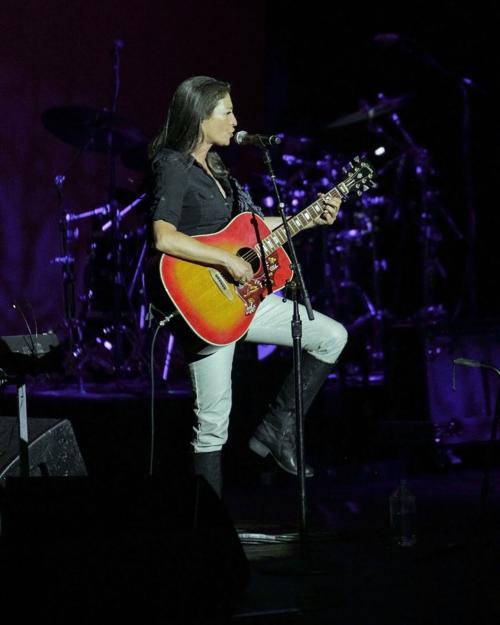Tucson singer-songwriter Linda Chorney did not hear her name called when the Recording Academy announced the 2022 Grammy nominations on Nov. 23, but the next day, her phone blew up with Google alerts.
Rolling Stone magazine, an entertainment website called J14 and a number of European news outlets were reporting that her song “Bored” was nominated for Best American Roots Song.
“I thought someone was playing a joke on me,” said Chorney, who was improbably nominated for her first Grammy in the Americana album category in 2012. “I didn’t sleep that night because I thought somebody was playing a trick on me.”
Within hours, though, all of those publications updated their nominee lists.
Chorney was not on them.
Which begged a question for the 61-year-old veteran independent musician: What happened to that initial list sent out hours before the Grammys were announced in Los Angeles?
“I was very doubtful that this was a print error at that point,” Chorney said. “How on Earth could my name have gotten on that list if I wasn’t nominated?”
Academy members including multi-genre singer-songwriter Natalie Jean reached out to Chorney, who’s a voting member after a 41-year independent music career, and to academy officials, asking how such a mix up could occur and demanding that it be investigated.
Then Chorney went to the man in charge, Harvey Mason, Jr.
Mason, a former University of Arizona basketball player (1986-90), was named CEO of the Recording Academy in June after serving as the interim CEO since January 2020. The Academy was embroiled in controversy when he took over, vowing to restore legitimacy to the organization’s nominating process.
The central issue facing the Academy was its secret nominating committees that some critics said sidestepped the votes of voting members. There also were allegations of racism, favoritism and vote rigging.
At 2 a.m. on Thanksgiving Day Nov. 25, Chorney sent Mason an email asking how she was on the initial nominee list but had been removed when the official list was announced.
At 6:20 that morning, Mason wrote back and promised to look into it.
On Monday, Chorney said she and Mason had a 30-plus-minute phone conversation during which he vowed to look into the situation and circle back to the accounting firm to verify the votes.
In a written statement to the Star, Mason confirmed that Chorney’s song “Bored” was voted as a Best American Roots Song nominee by her peers, but “before the nominations list was certified, the song was removed while” the academy’s accounting firm conducted an audit, he said.
That recount confirmed the nomination, he said.
“We apologize for any inconvenience this delay may have caused, but ensuring the integrity of our voting process is paramount,” Mason said.
By Monday night, the list was updated and Chorney’s name was added. Mason notified Chorney on Tuesday.
“I’m super happy,” Chorney said Wednesday as she fielded phone calls from Variety and the New York Times. “I am really hoping with (Mason) doing the right thing, it’s not just about the music business. It’s about the world. I hope his integrity is contagious.”
Not long after getting the news Tuesday night, Chorney told her father, Paul, who lives with her and her husband, Scott Fadynich.
He cried.
Her name appeared on the initial list but was removed when the nominees were announced on Nov. 23.





